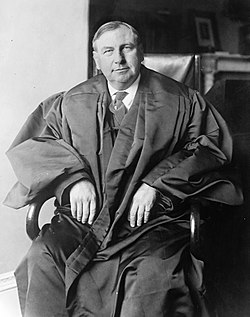| Girouard v. United States | |
|---|---|
 | |
| Argued March 4, 1946 Decided April 22, 1946 | |
| Full case name | James Girouard v. United States |
| Citations | 328 U.S. 61 ( more ) 66 S. Ct. 826; 90 L. Ed. 1084; 1946 U.S. LEXIS 2499 |
| Holding | |
| Religious pacifism is not a reason to deny a foreigner citizenship. | |
| Court membership | |
| |
| Case opinions | |
| Majority | Douglas, joined by Black, Murphy, Rutledge, Burton |
| Dissent | Stone, joined by Reed, Frankfurter |
| Jackson took no part in the consideration or decision of the case. | |
| Laws applied | |
| War Powers Act of 1941, The Nationality Act of 1940 | |
This case overturned a previous ruling or rulings | |
| United States v. Schwimmer (1929) | |
Girouard v. United States, 328 U.S. 61 (1946), was a case decided by the Supreme Court of the United States. It concerned a pacifist applicant for naturalization who in the interview declared not to be willing to fight for the defense of the United States. The case questioned a precedent set by United States v. Schwimmer in 1929 that denied an applicant entry to the United States because of her pacifist stance. Girouard v. United States overturned that precedent by voting in favor of James Girouard's religious freedom through allowing him to uphold his Seventh-day Adventist beliefs. Chief Justice Harlan F. Stone died the day of the decision. [1] [2]

